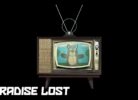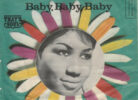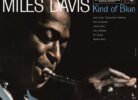Miles Davis has been one of my favorite artists for close to 25 years. If I started going on about how his work has touched me, the scope of his influence, and the importance of his creative legacy, I’d be here all night. The act of expression through creation is sacred to me, and few exemplify this more powerfully than Miles Davis.
Yet Youtuber Adam Neely makes an excellent point in the video below: A now infamous police brutality incident in 1959, just after the release of Davis’ masterful Kind of Blue album, almost robbed the world of 30 more years of groundbreaking music.
It’s an unfortunate story all on its own, but it’s just one thread in a much larger tapestry. Miles was just one man, and a famous one at that. But his experience more than 60 years ago is one that has been shared by countless people of color in the centuries prior and in the decades since. we know his story because he is not anonymous.
What about the anonymous masses who share his experience?
How many other great works of art have we lost?
How much knowledge or creativity have we beaten into the concrete?
How many young men and women never realized their potential as human beings because they lived in an environment that wouldn’t let them, under a system that worked against them, and among a nationwide population that has long been happy to turn a blind eye?
We pride ourselves on supposedly being a nation where life, liberty, and the pursuit of happiness is sacrosanct, but if we’re honest with ourselves, that’s always been an ideal we’ve never been able to live up to – and for many, it’s an ideal that will always be out of reach. The truth is, it’s a lie.
Miles’ voice came through his trumpet, and for that I will be forever grateful, but there are millions of others with no trumpets, and they’re crying out to be heard. They have been for generations.
It’s long past time for those of us who don’t have to fear that we could at any time be mistaken for a “criminal” and be arrested, brutalized, or worse to listen to them.
Not tell them how to feel. Not tell them how to deal with the hurt and anger and frustration. Not tell them it’s all in their head.
To LISTEN to them with open ears, hearts, and minds.
While the music they’re speaking may not have the beauty of the opening notes of Davis’ “So What,” it’s not meant to. The message is too important to be soothing — cecause sometimes abrasive music is the only kind that can rise above the din of our collective sleepwalking,







Pingback: 28 Songs that Changed My Life: John Coltrane, “A Love Supreme” (2 of 28) – ERIC SAN JUAN